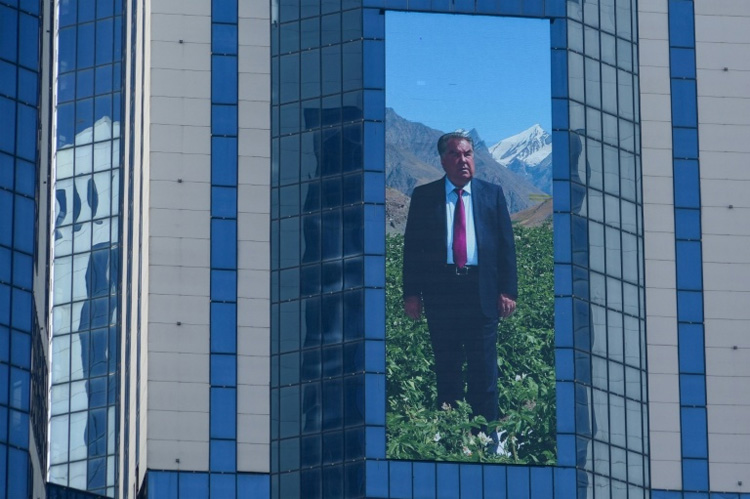News Flash
News Flash

DUSHANBE, Tajikistan, March 19, 2025 (BSS/AFP) - With no political opponents, no independent observers and no critical media, parliamentary elections in Central Asia's Tajikistan this month have predictably been won by the ruling party of long-time President Emomali Rakhmon.
Tajikistan is a mountainous, impoverished ex-Soviet country sandwiched between Afghanistan, China, Uzbekistan and Kyrgyzstan that has been ruled by Rakhmon for more than three decades.
The vote took place after nine opposition politicians and journalists were sentenced last month to up to 27 years in prison for plotting a "coup" -- a case seen by observers as the latest example of growing repression in the country.
Rakhmon has been at the helm since 1992 and there was little surprise that his People's Democratic Party has won an overwhelming majority in parliament.
The new parliament held its first session on Wednesday, with 49 out of 63 seats going to the ruling party, according to an official from the ruling.
There will be four other parties in parliament but they are all loyal to Rakhmon, who is officially referred to as the "founder of peace and national unity".
The authorities declared the vote "open, free and transparent".
Russia and China, both key allies, and Tajikistan's Central Asian neighbours have endorsed the vote.
But the Organisation for Security and Cooperation in Europe refused to send an observer mission because of a lack of "formal guarantees" that the observers could carry out their work.
The OSCE said there had been "a clear deterioration in respect for the rights to freedom of expression, association, and assembly".
Citing administrative problems, the Electoral Commission did not accredit the rare media not affiliated with the Tajik government like the local branch of Radio Free Europe/ Radio Liberty or Asia-Plus.
- 'Known in advance' -
Tajiks who spoke to AFP in the streets of the capital Dushanbe said they were not bothered about the election, following a monotonous campaign featuring little-known parties with almost identical programmes.
Matlouba, a 23-year-old technology teacher, said she could not understand why the authorities "spend so much on it since we already know who will be elected and everything is known in advance".
Others seemed frustrated like Alisher, a 40-year-old construction worker.
"I don't see the point in voting for lawmakers who will not support vulnerable groups in the population," he said.
Tajikistan is the poorest of the former Soviet republics despite a recent increase in average salaries to around 200 euros a month.
Many in the tightly-controlled country worry about speaking out.
Sayora Numonova, a doctor, said she wanted newly-elected lawmakers to "open schools and training centres to ensure education and employment for young people" and stop them emigrating to Russia.
- Freedoms declining -
The parliamentary elections were the last national election before a presidential vote in 2027 in which Rakhmon, who is 72, could pass on power to his son Rustam Emomali.
The 37-year-old already has several official posts as speaker of the upper house of parliament, mayor of Dushanbe and even president of the Central Asian football federation.
Some observers say the prospect of a handover to his son is encouraging Rakhmon to tighten his grip on power to ensure everything goes smoothly in a country still marked by a civil war that raged between 1992 and 1997.
A Tajik expert who spoke to AFP on condition of anonymity to avoid reprisals, said elections "have never been transparent or fair since independence. But the situation is getting worse over time.
"Until now, the authorities have tried to imitate a democratic process... but what is happening now is beyond all limits," he said.
The expert said that "in a country where executive power has subjugated all the other powers, parliament cannot play a significant role, lawmakers will continue their function of legitimating the decisions of the government".
A 2025 report by Freedom House, a non-governmental organisation, said Tajikistan had seen one of the sharpest declines in the world in civil and political liberties.
The organisation lists Tajikistan as the "worst of the worst" alongside Afghanistan and North Korea.